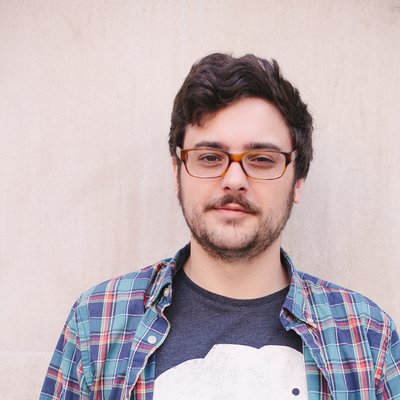
Samuel Piccone is an instructor teaching across the ISUComm Program (ENGL 150, 250, 302, and multiple learning communities), integrating creative writing pedagogy and radical revision approaches to his courses. Piccone started his academic career at the University of Colorado, graduating with a bachelor’s degree in English; afterwards, he attended DePaul University in Chicago and graduated with a master’s degree in writing and publishing, then attended North Carolina State and graduated with a master’s of fine arts degree in creative writing. During his time at North Carolina State, Piccone TAed for the first time and began to intersect technical composition and grammar with creative writing pedagogy, recognizing how both approaches could inform each other and improve beginning writers’ work (for example, an early assignment involved a rhetorical analysis of a poem).
After graduate school, Piccone taught composition courses at Iowa’s DMACC and Ellsworth Community College, as well as at Nevada State College, before moving to Ames, IA and beginning work at Iowa State University. With his years of experience in multiple writing programs, Piccone approached the ISUComm curriculum with a continued emphasis on the intersection between technical and creative writing. Piccone spoke about how when he introduces creative writing into the ISUComm course space, students are not always sure of how to approach creative content, but how that uncertainty also allows for students to take more risks in their analyses, and also to challenge themselves in their own writing for the course. Students grew increasingly excited by creative writing readings, as they realized they were not only required to read a textbook, finding fun in exploratory subject matter.
Beyond the integration of creative writing into assigned readings, Piccone also applies a creative writing ethos to his revision and grading approaches. Piccone spoke of how counterintuitive grading a paper quantitatively can be for students, as it doesn’t fully share with students what they should be taking from the course; this held especially true for beginning writers in ENGL 150 and 250, who sought more assessment on their content rather than technical proficiency. Piccone addresses these concerns with an emphasis on collaborative based grading. For each major assignment, Piccone directs students to use the rubric as a basis for an early draft, which they will then grade themselves on before submitting; afterward, students will conference with Piccone, reading their work together and discussing its strengths and weaknesses. After this conference, students radically revise their work and are given a final grade based on their progress. Piccone said this different approach deemphasizes the grade and instead emphasizes the writing process, because it is “what real writers do.”
Outside of his work in the ISUComm program, Piccone is involved in TA and peer mentoring programs, which he really enjoys as a way of sharing his pedagogical approaches and learning new methods. He also judges the undergraduate creative writing contest, and writes poetry. When not instructing or enjoying Iowa State University’s campus, Piccone enjoys spending time with his wife and their son, cooking, and pretending to not hate playing golf.